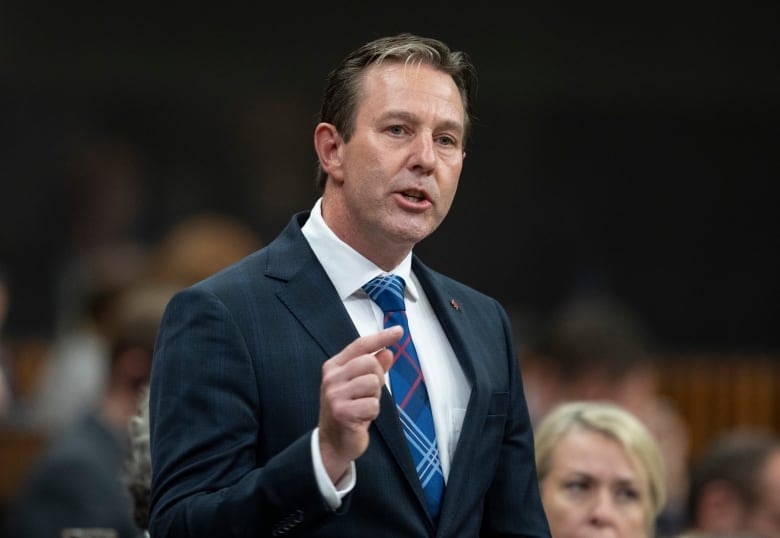
Opposition parties want to hold parliamentary committee hearings to probe Health Canada’s new natural health product regulations when the House of Commons gets back to work after its summer break, CBC News has learned.
The Conservative and NDP health critics both say their offices were swamped over the summer with messages from constituents worried the regulatory changes could lead to increased prices and fewer choices for consumers.
They say they want to summon Health Canada officials before the standing committee on health, which meets next when the House resumes on Sept. 18.
In a minority Parliament, opposition parties can control committee agendas.

Conservative MP Stephen Ellis, a medical doctor and the party’s health critic, said he’s received more emails from constituents on the new natural health product regulations than on any other issue, including the Liberal government’s controversial firearms legislation, Bill C-21.
“When inflation is at an all-time high and access to health care is at an all-time low, I cannot accept this,” said Ellis, MP for Cumberland—Colchester.
The issue could serve as a political weapon for the Conservatives and New Democrats, who are promising to lower the cost of living and are trying to blame the Liberals for the rising cost of pretty much everything.
Health Canada says most Canadians use natural health products on a daily basis.
The new regulations give Health Canada the ability to immediately recall a natural health product — anything from toothpaste to supplements — instead of waiting for up to six months. They also force producers to update their labelling to include more information about their products, such as whether they contain allergens.
The recall regulation took effect with passage of the omnibus Bill C-47 last June. It’s an extension of the Protecting Canadians from Unsafe Drugs Act, also known as Vanessa’s Law. The act was named after Vanessa Young, who died in 2000 at the age of 15 of a cardiac arrhythmia after taking a cisapride, a heartburn medication, as prescribed.
The labelling requirement came into force in July 2020 and companies were given six years to make the change.
Ottawa looks to charge $5B industry for regulation
But the most contentious regulatory change is still to come. Opposition MPs say it’s the one driving most of the public backlash.
The planned change would force natural health producers to reimburse Health Canada for the cost of monitoring and approving their products before they hit the market.
Don Davies, NDP MP for Vancouver Kingsway, told CBC News he fears Health Canada is “missing the mark.”
“I’m here in Vancouver where, for instance, traditional Chinese medicine, herbal remedies that have existed for thousands of years but maybe haven’t gone through the western-style pharmaceutical, therapeutic process … they … feel vulnerable and they feel at risk,” he said.

Davies pointed out that the auditor general has scolded Health Canada for failing to conduct inspections and enforcement as required under current regulation.
“I’m a little bit concerned that Health Canada is not putting the focus where they should, which is on greater inspection and enforcement of the regulations that they have, because this is a really well-regulated industry,” he said.
The planned regulatory change is being opposed by national media campaigns, including the “Save Our Supplements” campaign launched by the Canadian Health Food Association. The group claims that one in five natural health brands are considering leaving Canada.
Another campaign, from the Natural Health Product Protection Association, claims Ottawa is trying to do away with natural products.
‘No intention’ to restrict or ban products
Health Minister Mark Holland declined an interview with CBC News, as did Liberal members of the health committee.
Holland’s office instead helped to arrange an interview with Canada’s chief medical adviser, who defended the regulatory changes.
“What’s been challenging with the campaigns is that there’s been a lot of misinformation, disinformation out there,” said Dr. Supriya Sharma, chief medical adviser at Health Canada.
“There is no intention by Health Canada to stop the sale of, restrict access of, or ban any natural health products.”

Makers of natural health products don’t pay fees to Health Canada for monitoring and regulatory oversight, she said.
The fees the department is looking to pass on could range up to tens of thousands of dollars. Sharma said smaller companies could qualify for a reduced fee of $562.
Prescription drug companies pay hundreds of thousands of dollars for Health Canada monitoring and oversight, she said.
Health Canada has just finished its first round of consultations and is reviewing thousands of comments before moving forward with charging the $5 billion industry for the cost of regulation.
“If there’s a need to refine it or to change it, then we will do that,” Sharma said.
Ellis said Health Canada’s proposal is “akin” to the carbon tax — a federal Liberal climate policy the Conservatives are vowing to eliminate.
“It’s incredibly dismissive from Health Canada to hear them calling this misinformation and disinformation,” he said.
“It appears to be a regulation looking for something to regulate, which is the worst type of regulation and gatekeeping that we can possibly see.”
Davies said he has met with representatives of the natural health product industry and it’s time for Health Canada to show its homework on the proposed regulation.
“We should not hesitate to tell Health Canada to go back to the drawing board,” he said.

The Green Party of Canada sent a submission to Health Canada this month objecting to the regulatory changes, citing concerns about increased costs and the burden placed on small and medium-sized businesses.
Deputy Leader Jonathan Pedneault said he agrees natural health products need regulation but he doesn’t think the new regulations are the right tools.
He said he wants Health Canada to pause all its regulatory work on health products until there is a robust debate in Parliament.
“It’s a very interesting thing to see that Health Canada thinks it can properly regulate these products while it’s unable to actually regulate the pharmaceuticals as they currently are under the law,” Pedneault said.
Industry worries about lost business
Wajihia Qureshi, manager of the natural health product store Nutrition House in Ottawa’s Carlingwood Mall, said her business is bracing for a price increase of 20 to 25 per cent on products if all of Health Canada’s regulatory changes go through.
She said she would have to raise prices, which could cut into sales and lead her to drop some products from her shelves.
“Those products help me to keep going with my operations,” Qureshi said.
“When I lose them, I lose my operational cost and I lose my customers, I lose the flow of traffic, everything. So everything will be affected.”
Qureshi warned that customers who turn to pharmaceuticals instead could add to the burden on the health system. She also suggested her customers could end up buying online from the U.S.
“It will be very difficult,” she said.

Dr. Sharma said the purpose of the changes is to improve consumer access and ensure companies make truthful claims about the products they sell.
“We do have a fairly light touch right now on the monitoring of products and there’s some significant gaps,” she said.
One of the gaps identified by the department came from a 2021 auditor general’s report, which took a random sample of natural health products and found 88 per cent of them used false or misleading advertising, said Sharma.
“That could be in terms of what they claim that the products do, the dosing, the way that the products are represented,” she said.
“Part of what those [new] fees are intended to do is to put in a better compliance and enforcement structure, better inspections, better education, so we can improve the information.”
There are more than 200,000 natural health products on the market now, said Sharma, and such products are consumed by about 70 per cent of Canadians.
“We want people to be able to trust those products,” she said.